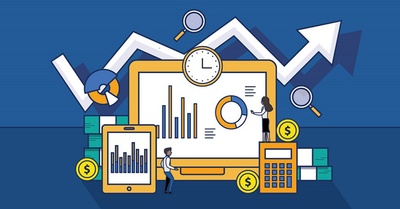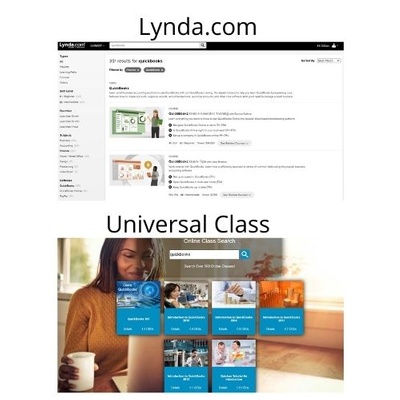‘Tis the season for thawing, Shamrock Shakes, and Spring (finally!). It’s also tax season, so we’re hitting you with some hard truths about everyone’s favorite topic: accounting!
We spoke with Joey Pfluger from tax and accounting firm Bee, Bergvall & Co., who are one of the Business Resource and Innovation Center’s favorite partners. They host Ask an Accountant: Office Hours with an Accountant on the fourth Tuesday of each month, except March because it’s—you guessed it—tax season!
Joey joined Bee, Bergvall & Co. in 2017, initially as a college intern. Upon graduation, Joey became a staff accountant with the firm and currently works in the audit department. He has a BS and an MS in Accounting from Penn State University. Bee, Bergvall & Co. is a suburban firm established in 1981, when James Bee left his regional firm to establish his own practice. Bee, Bergvall & Co. is able to meet all sorts of accounting needs including, but not limited to: Tax Planning and Preparation, Consulting & Advising, Audits, Reviews, and Compilations, Estates, Trusts, and Tax Preparation, Accounting Support, and Cash Flow and Budgeting Analysis. They take pride knowing that they help clients reach their goals.
Why does every business need an accountant?
Partnering with an accountant provides you with a trusted advisor to guide and assist you as you make decisions about your business or organization.
Accounting is a vital part of any successful organization. First and foremost, having an experienced accountant means that good, proper records of financial transactions are kept, which is something that should not be taken for granted. Having accurate records ensures that the information stemming from them is reliable and can be used for high-level decision-making. In that respect, accountants can often be utilized as key advisors, aiding in the decision-making process. They are able to use their accounting experience to provide financial intelligence to identify trends as well as areas of strength or weakness and can share these insights with you.
Working with an accountant can save you both time and money. By sharing their expertise, your accountant can steer you away from costly mistakes, ensure you don’t run afoul of the IRS, as well as assist you in navigating the tax code to ensure you are getting the maximum benefits.
What advice do you have for organizations that need financial assistance?
The best advice for businesses is to stay in front of finances and bookkeeping by first educating yourself. Time and funds invested in gaining the knowledge you need as a leader, is time and money well spent. If you’re able, take online courses on utilizing software to manage and monitor your finances. The BRIC, community colleges, and community schools often have affordable workshops and seminars, and some even offer scholarships.
Utilizing a bookkeeper can be a cost-effective way to keep your records in order. Accountants and bookkeepers can work together, ultimately saving you money in the long run. For complex tax matters and higher-level decision-making, providing your accountant with clean records is critical. Depending on your needs, you may be able to affordably incorporate these services into your company.
Okay, Joey, I’m sold! Can you tell me how to go about actually hiring an accountant?
Recommendations and referrals from other business owners is the first place to start. You can certainly do a quick Google search to give you a general idea of what sorts of accounting professionals are in the area, but before you hire someone, you will want to know their overall level of experience and credentials.
Prior to contacting an accounting professional, try to be as clear as possible with the types of services you are looking for, and ask about the types of experience the professional has in this area. Check out the following article on the "Top 13 Questions to Ask When Hiring a CPA for Your Business".
Also, the Pennsylvania Institute of Certified Public Accountants (PICPA) has a very helpful CPA locator service.
Further, the American Institute of Certified Public Accountants (AICPA) can assist you in locating accountants with specialty designations such as forensics, business valuation, or technology.
The Certified Public Accountant, or CPA designation, is highly held in the accounting profession and is seen as the gold standard. Hiring a CPA will almost always come with a higher price than hiring an accountant without the certification. Note that not all organizations or businesses need the help of a CPA. Often, in small organizations, someone with a background in accounting, but without the CPA designation, is able to adequately get the job done. Another designation to know is Enrolled Agent, or EA. An EA is a tax practitioner with specialty training on working with the Internal Revenue Service (IRS).
What is the typical cost for accounting services?
The costs for accounting services vary depending on the type of engagement, size, and complexity of the business, as well as geographic region. Each tax professional may structure their fees differently, and there is not a ‘one-size fits all’ fee.
Before utilizing the services of an accounting or bookkeeping professional, you will want to have a clear Scope of Work and fee for the work to be provided. Again, having your records in good order will save time and money.
Tax filings widely vary from organization to organization. A business with a complicated accounting system and revenues of $20,000,000 will have a much higher cost for their tax filings than one that only uses QuickBooks and has revenues of $100,000.
To get an idea for your own business, it would be best to reach out to an accounting firm or professional. In general, you can expect the fee to be somewhere between $500-$2,500. The fee will largely be determined by the size and complexity of your company. This is where clear, accurate records can significantly reduce your fee, or conversely, poor records can significantly increase it.
NOTE: All businesses with employees must also file the appropriate federal, state, and local employment taxes.
Bookkeeping fees may be on an hourly or project basis, and could range from $50 to $145 an hour.
When is it time to pay for accounting services?
Immediately. Accounting services are part of a successful business. It begins with choosing the best business structure. Budgeting, control of cash flow, and tax planning are essential to long term success. Accounting professionals are able to step back and look at the big picture allowing the business owner to focus on day-to-day operations. The majority of the time the benefits of hiring an accountant outweigh the cost.
Can you share a horror story about a time a business owner should have used an accountant but didn’t?
For client confidentiality purposes, no names will be provided. But this story is true.
We received a call from an individual who had been preparing their individual tax return using inexpensive tax software. This person had a rental property and was actively involved with the rental. The box for ‘material participation’ was never checked within the software and therefore losses from the rental were being disallowed. As a result, there was a large ‘passive activity loss’ carried forward. The individual did not have the knowledge to know that these losses could have been utilized in the year they occurred, which would have resulted in significant tax savings.
Lesson Learned: The knowledge and expertise that an accounting professional provides goes beyond knowing which boxes to check. In the instance above, the accountant could have discussed various scenarios with the taxpayer, resulting in the taxpayer receiving the maximum benefit from their business.
Help, I asked an accountant but I still have questions (a.k.a. Accounting FAQs)!
Q. What’s the difference between a bookkeeper and an accountant?
A. Although bookkeepers and accountants may do some of the same tasks, a bookkeeper is generally involved in recording transactions and keeping the records organized. An accountant, on the other hand, is trained to analyze, interpret, and summarize financial data and have expertise in particular areas such as taxation. Accountants will have a professional 4-year degree as well as a variety of specialty certifications such as a CPA (Certified Public Accountant), an EA (Enrolled Agent), or a MS/MST/MBA (various technical Master’s Degrees).
Q. Why should I use a CPA?
A. As tax advisors, CPAs can provide tax consulting, personal tax planning, business tax advice, other tax services, and representation before tax authorities. CPAs can help individuals and families improve their tax position and realize significant tax savings. Certified Public Accountants (CPAs) are required to have either a baccalaureate or master’s degree and also complete at least a total of 24 semester credits in accounting, auditing, business law, finance, etc. and have two years of experience, or complete 150 semester credits including 24 semester credits in accounting, auditing, business law, finance, etc. and one year of experience. In addition, they must pass a comprehensive multi-part exam before they are able to use the CPA designation. So, when you see the CPA designation you can be confident that the individual has extensive education and training.
Further, CPAs are required to complete 80 hours of Continuing Education credits every two years to ensure that they stay current on issues.
Q. Besides preparing my return each year, what other services can my CPA provide?
A. CPAs advise both individuals and businesses on compliance with the tax laws. CPAs are bound by a stringent code of professional ethics and are qualified through their education and experience to provide a wide range of tax services relating to personal and business decisions. They prepare tax returns, provide advice on tax issues, plan effective tax strategies for individuals and businesses, and represent taxpayers before taxing authorities.
Q. Is there anything I can do to control the cost of my return?
A. Yes, there are several things you can do. First and foremost, be organized. Keep your records in good order. This will help reduce your total costs. You may utilize financial software or engage the services of a bookkeeper for your business.
Q. Is my information kept private?
A. CPAs, like all providers of personal financial services, are required by law to inform their clients of their policies regarding privacy of client information. CPAs have been and continue to be bound by professional standards of confidentiality that are even more stringent than those required by law. Cyber security is a real threat, and you should ask your tax professional about safeguards they have in place.
Access bookkeeping and Quickbooks courses via the Free Library’s online learning resources, like Universal Class and Lynda.com!
Have a question for Free Library staff? Please submit it to our Ask a Librarian page and receive a response within two business days.



